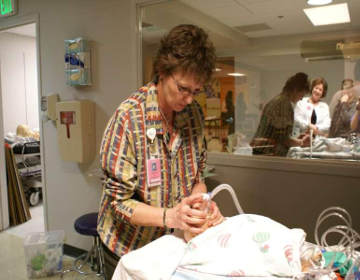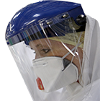Nevada Nurses Association Continuing Education Resources

NNA Continuing Education Courses

Below are the continuing education online courses that we offer. To access the course materials, click on the appropriate link. If you have not already logged in, you will asked to do so. If you do not have a user account on this site, you will be asked to register by answering a few quick questions. Registration is free.
Please see the home page for a description of how the certification process works and for a list of applicable fees.

This four contact-hour continuing education activity is offered through the Nevada Nurses Association by Nicola Aaker, a continuing education provider recognized by the Nevada State Board of Nursing (provider #NV000603).
Successful completion of this course satisfies the one-time requirement for licensure by the Nevada State Board of Nursing (NSBN) for all nurses to take four hours of continuing education "relating to the medical consequences of an act of terrorism that involves the use of a weapon of mass destruction" pursuant to the Nevada Nurse Practice Act, NRS 632.343 (3).
To receive continuing education credit for this course, you must score 80% or better on the quizzes. If you receive a score below 80%, you will be instructed to reread the materials and retake the quiz until you score 80% or better. Upon successful completion, you will receive a completion certificate from NNA for your records. The certificate is free for NNA members and $30 for non-members. Click here to start or continue viewing the course materials.

This continuing education course is 90 minutes in duration, offering a total 1.5 CEUs for Registered Nurses. The aim is providing skills, tools, and resources nurses can immediately apply to their work regarding Fetal Alcohol Spectrum Disorders (FASD). Course goals, emphasizing the duty to intervene, are to update and enhance a nurse's competency before, during, and/or after an alcohol-exposed pregnancy thus preventing or reducing harms from FASD.
Information covered includes referring the mother, child, and/or other children in the family, as indicated, to diagnostic and/or intervention services. Developed in 2016 and presented by Catherine S. Wade, M.S., M.S.N., R.N., P.H.N., L.A.D.C.-P.C., with updated information and recent research findings, this presentation aligns with the seven core proficiencies of the Centers for Disease Control regarding core competencies for educating health professionals about FASD (FASD Regional Training Centers Curriculum Development Team, 2009).
To receive continuing education credit for this course, you must score 80% or better on the quizzes. If you receive a score below 80%, you will be instructed to reread the materials and retake the quiz until you score 80% or better. Upon successful completion, you will receive a completion certificate from NNA for your records. The certificate is free for NNA members and $15 for non-members. Click here to start or continue viewing the course materials.

SBIRT is designed to provide universal screening, secondary prevention (detecting risky or hazardous substance use before the onset of abuse or dependence), and early intervention and treatment within primary care and other health care settings for people who have problematic or hazardous alcohol problems. The four online training modules will provide participants the opportunity to gain awareness around epidemiological trends and data regarding the percentage of the US population participating in risky alcohol and other drug use, and medical conditions associated with risky drinking and drug use. During the training, participants will also be exposed to a standardized SBIRT protocol and see it demonstrated, with an emphasis on the three core brief intervention strategies that are consistent with a motivational interviewing approach, including avoiding roadblocks, reflective listening, and evoking change talk.
At the end of the training, nurse participants will be able to:
- Describe the difference between individuals with substance use disorders and those participating in risky drinking
- Detect the effective use of brief intervention strategies and techniques to motivate clients to change their at-risk substance use behavior and/or seek treatment
- Recognize screening skills with an evidence-based tool
- Identify screening tools used to assess patients for risky alcohol and other drug use
The course is offered by the Center for Application of Substance Abuse Technologies (CASAT) and UNR and is free for both NNA members and non-members. Click here to access this course. Note: this link will take you to another Web site.